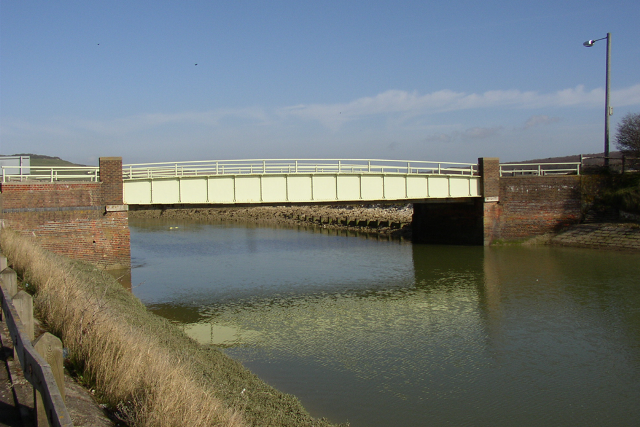Liebherr Betomat for Fuchs Fertigteilwerke: Efficient and environmentally responsible concrete production
Resource-saving use of materials, reduction of emissions, increase in efficiency - goals that are also increasingly coming to the fore in the construction industry.At the end of March, the groundbreaking ceremony for the construction of the new Betomat took place at the company Fuchs Fertigteilwerke Süd GmbH in Röttenbach. Fuchs Fertigteilwerke Süd GmbH in Röttenbach, a long-standing customer of the Group, also attaches great importance to the use of machines that meet both the company's high working and environmental requirements. The installation of the new Betomat concrete batching tower from Liebherr, which precisely meets this requirement profile, has now begun. On Friday, March 24, the groundbreaking ceremony for the construction of the new concrete batching plant, the customer's largest investment at the site in the last 50 years, took place. In an interview with the managing directors of Fuchs Fertigteilwerke in Röttenbach, Fabian Wirth, Marcel Kästner and Conrad Fuchs, and the head of project management for batching plants at Liebherr-Mischtechnik GmbH, Florian Hafen, both sides reported on the positive cooperation and the progress of the project so far. From Liebherr-Mischtechnik GmbH, Rudolf Gschossmann (Sales), Sebastian Sailer (Sales) and Florian Hafen (Project Department Mixing Plants) were on site. What specific advantages does the Liebherr Betomat offer in terms of reducing CO2 emissions, and what role does this play for Fuchs Fertigteilwerke? Fabian Wirth: "It is very important for our company that we optimize the use of materials as far as possible in the production of precast elements for environmental technology, infrastructure, building and civil engineering." Marcel Kästner: "With the new batching plant from Liebherr, we significantly reduce dust and noise emissions. Thanks to the exact dosing in the concrete mix, we also save up to 360 tons of cement per year compared to the accuracy specified in the standard. This unused quantity corresponds to a CO2 equivalent of 211 tonnes, which would be produced partly in the chemical clinker reaction and partly in thermal energy used in the production process. When you consider that, according to Statista, an average inhabitant of Germany produces 7.9 tonnes of CO2 per year , that is a highly significant reduction in CO2 emissions!" An impression of the groundbreaking ceremony for the construction of the concrete mixing tower on Friday, 24 March, in Röttenbach. From the ecological point of view, therefore, the Liebherr-Betomat offers great advantages. How should the plant be evaluated from an economic perspective? Conrad Fuchs: "In this case, the financial savings go hand in hand with the resource savings that arise in cement usage. From an ecological and commercial perspective, that is resource conservation at its best! We are very proud that we are taking a major step in the right direction here, together with Liebherr!" Florian Hafen: "At Liebherr, we think it is very important that economic and ecological demands can be united in the interests of our customers. We believe that economic and ecological aspects can be linked through technological progress. Our clear goal is to be able to offer our customers the best possible solutions that lead to modern and resource-saving concrete production." The signing for the official start of construction of the Betomat. What role does the environmental compatibility of products play at Liebherr-Mischtechnik GmbH? Florian Hafen: "Reducing the emissions of our products is an issue that is becoming increasingly important. At Liebherr-Mischtechnik, we want to make the best possible use of potential in the interests of our customers. We have already been able to make great progress with regard to significantly reduced resource and energy requirements of our batching plants. Our development departments are working consistently on the further optimization of our batching plant series, both in terms of performance and ecological footprint. We are always pleased to see that this effort is also seen and supported by our customers - as is the case with Fuchs. This is how we at Liebherr, together with customers and partners, can contribute to the construction site of the future." The installation of the new Liebherr batching plant is expected to be completed by autumn. It will then replace its previous plant after five decades of service. www.liebherr.com Powered by Induportals Media Publishing

Resource-saving use of materials, reduction of emissions, increase in efficiency - goals that are also increasingly coming to the fore in the construction industry.

Fuchs Fertigteilwerke Süd GmbH in Röttenbach, a long-standing customer of the Group, also attaches great importance to the use of machines that meet both the company's high working and environmental requirements. The installation of the new Betomat concrete batching tower from Liebherr, which precisely meets this requirement profile, has now begun.
On Friday, March 24, the groundbreaking ceremony for the construction of the new concrete batching plant, the customer's largest investment at the site in the last 50 years, took place. In an interview with the managing directors of Fuchs Fertigteilwerke in Röttenbach, Fabian Wirth, Marcel Kästner and Conrad Fuchs, and the head of project management for batching plants at Liebherr-Mischtechnik GmbH, Florian Hafen, both sides reported on the positive cooperation and the progress of the project so far.

From Liebherr-Mischtechnik GmbH, Rudolf Gschossmann (Sales), Sebastian Sailer (Sales) and Florian Hafen (Project Department Mixing Plants) were on site.
What specific advantages does the Liebherr Betomat offer in terms of reducing CO2 emissions, and what role does this play for Fuchs Fertigteilwerke?
Fabian Wirth: "It is very important for our company that we optimize the use of materials as far as possible in the production of precast elements for environmental technology, infrastructure, building and civil engineering."
Marcel Kästner: "With the new batching plant from Liebherr, we significantly reduce dust and noise emissions. Thanks to the exact dosing in the concrete mix, we also save up to 360 tons of cement per year compared to the accuracy specified in the standard. This unused quantity corresponds to a CO2 equivalent of 211 tonnes, which would be produced partly in the chemical clinker reaction and partly in thermal energy used in the production process. When you consider that, according to Statista, an average inhabitant of Germany produces 7.9 tonnes of CO2 per year , that is a highly significant reduction in CO2 emissions!"

An impression of the groundbreaking ceremony for the construction of the concrete mixing tower on Friday, 24 March, in Röttenbach.
From the ecological point of view, therefore, the Liebherr-Betomat offers great advantages. How should the plant be evaluated from an economic perspective?
Conrad Fuchs: "In this case, the financial savings go hand in hand with the resource savings that arise in cement usage. From an ecological and commercial perspective, that is resource conservation at its best! We are very proud that we are taking a major step in the right direction here, together with Liebherr!"
Florian Hafen: "At Liebherr, we think it is very important that economic and ecological demands can be united in the interests of our customers. We believe that economic and ecological aspects can be linked through technological progress. Our clear goal is to be able to offer our customers the best possible solutions that lead to modern and resource-saving concrete production."

The signing for the official start of construction of the Betomat.
What role does the environmental compatibility of products play at Liebherr-Mischtechnik GmbH?
Florian Hafen: "Reducing the emissions of our products is an issue that is becoming increasingly important. At Liebherr-Mischtechnik, we want to make the best possible use of potential in the interests of our customers. We have already been able to make great progress with regard to significantly reduced resource and energy requirements of our batching plants. Our development departments are working consistently on the further optimization of our batching plant series, both in terms of performance and ecological footprint. We are always pleased to see that this effort is also seen and supported by our customers - as is the case with Fuchs. This is how we at Liebherr, together with customers and partners, can contribute to the construction site of the future."
The installation of the new Liebherr batching plant is expected to be completed by autumn. It will then replace its previous plant after five decades of service.
www.liebherr.com
Powered by
Induportals Media Publishing

 machineryasia
machineryasia 









